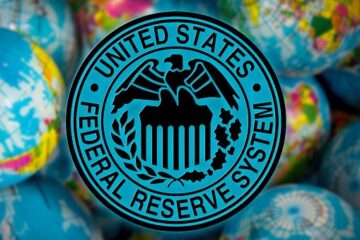The liquidator of Sam Bankman-Fried’s bankrupt empire had asked the court for the green light to end a series of endorsement deals.
John Ray, the CEO in charge of liquidating Sam Bankman-Fried’s crypto empire, continues to clean up the mess.
He has just obtained authorization from a federal judge to put an end to a series of endorsements deals and partnerships. These linked the FTX cryptocurrency exchange to entertainment stars, major sports leagues including NBA franchises, and conferences.
FTX will end deals with National Basketball Association star Steph Curry and with supermodel Gisele Bundchen, the ex-wife of National Football League star Tom Brady, according to court documents published on Jan. 26.
SC30, the company responsible for Curry’s complete off-court business portfolio, had signed a partnership and endorsement services agreement, dated as of Aug. 11, 2021.
Bundchen had signed a partnership and endorsement agreement, dated as of May 27, 2021. The supermodel was also a shareholder with 686,761 shares.
FTX will also cut ties with baseball star Shohei Ohtani, with whom it had an endorsement services agreement. The deal was signed on Nov. 16, 2021.
Partnerships and sponsorships with the NBA franchises Golden State Warriors and Miami Heat will be terminated. Likewise with a sponsorship agreement, signed on Dec. 24, 2021, with SALT Venture Group, a networking forum organized by Anthony Scaramucci, former President Donald Trump’s very-short-lived White House communications director.
FTX is also ending a partnership with Major League Baseball.
Lawsuit Hits FTX Ambassadors
Curry, Bundchen, Brady, former NBA star Shaquille O’Neal and other FTX ambassadors, including celebrities who promoted the platform, are the subject of a a class-action lawsuit filed in Florida in November. The complaint accuses them of having promoted a Ponzi scheme.
“The deceptive FTX platform maintained by the FTX entities was truly a house of cards, a Ponzi scheme where the FTX entities shuffled customer funds between their opaque affiliated entities, using new investor funds obtained through investments in the [yield-bearing accounts] and loans to pay interest to the old ones and to attempt to maintain the appearance of liquidity,” the lawsuit said.
The plaintiffs added that “part of the scheme employed by the FTX entities involved utilizing some of the biggest names in sports and entertainment — like these defendants — to raise funds and drive American consumers to invest in the YBAs, which were offered and sold largely from the FTX entities’ domestic base of operations here in Miami, Florida, pouring billions of dollars into the deceptive FTX platform to keep the whole scheme afloat.”
The Collapse of the FTX Platform
Brady and Bundchen starred in FTX ads, promoting cryptocurrencies. But the sudden collapse of the platform has jeopardized the savings of hundreds of thousands of retail and institutional investors.
FTX was using client cryptocurrencies as collateral to borrow money, which in turn it had transferred to Alameda Research, with which it shares several links. Alameda used this money to invest in crypto businesses and also for trading operations.
“Bankman-Fried was orchestrating a massive, yearslong fraud, diverting billions of dollars of the trading platform’s customer funds for his own personal benefit and to help grow his crypto empire,” the SEC alleges in its civil complaint.
During a Jan. 3 hearing in U.S. District Court in New York, Bankman-Fried pleaded not guilty to related criminal charges. He was released after his parents, both law professors at Stanford University, signed a $250 million recognizance bond pledging their California home as collateral. Two other friends with significant assets also signed, according to court documents.


